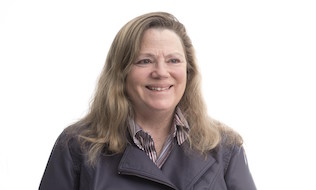

Living her best life with her husband Jeremy, Karen Formosa was looking forward to retiring within the next six years. But all that changed when she was diagnosed in 2018, at the age of 56, with stage 3 BRAF melanoma.
“The end of February 2018, I spotted the ball on the right side of my chest that was black with dry skin around it,” she said during a session at Benefits Canada‘s Employers Cancer Care Summit in Toronto on Feb. 27. “I went to the family doctor right away and she referred me to an oncologist. The oncologist said, ‘I don’t think it’s cancer, but let’s do a biopsy.'”
Read: Options for supporting employees in the return to work
The oncologist called a week later to tell Formosa she had cancer and that she already had an appointment booked with a surgeon. “My emotions were running very high,” she said of the moments after she got that call. She started undergoing treatment at Credit Valley Hospital, which continues today.
“The drug planner came in to go over things regarding coverage for the medication,” said Formosa. “I was shocked to learn the treatment for melanoma isn’t covered under OHIP. These drugs are very expensive. We were told the cost would be up to five per cent of my salary through the Trillium Health fund. Luckily, at the time, my benefits covered 100 per cent, which was a huge relief.”
Read: A look at best practices for managing cancer in the workplace
The medication had been stamped for approval by Health Canada in 2017, she added. “I also was shocked to learn that less than a year before, this type of melanoma wasn’t curable. I was fortunate this medication was just approved by Health Canada.”
In November 2018, Formosa found out her company was being sold, which meant her treatments wouldn’t be completely covered completely and she’d have to pay 10 per cent. “I went into panic mode. Who has $14,000 for the next seven months in their back pocket? Everything about a cancer journey is stressful. But being told your treatments are covered then told they’re not is beyond stressful. As cancer patients, we understand the importance of staying positive and how reducing stress and anxiety can help our healing.”
Fortunately, her former employer told her it would pick her up as a retiree, so her treatments are now fully covered.
Read more coverage of the 2019 Employers Cancer Care Summit.
